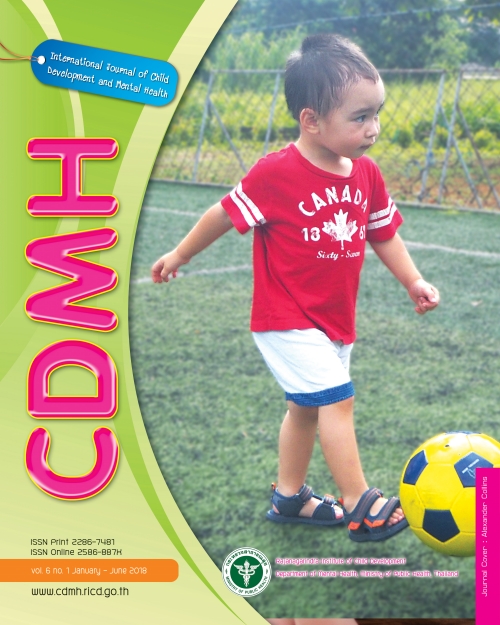Effects of Self–Control Program Based on Future Orientation of Grade 9 Overweight School Girls of a Private School
Main Article Content
Abstract
This quasi-experimental research is aimed at studying the effect of a self-control program based on future orientation on grade 9 overweight school girls. Subjects were 32 overweight school girls. They were randomly put equally into an experimental group and a control group. The experimental group participated in a twelve-session program based on the Transtheoretical Model (TTM) of stages of change designed by the experimenter aimed to convince the subjects to be concerned about their future physical and mental health and to keep their weight (WT) and body mass index (BMI) in a normal range by choosing food consumption and doing exercise. Each session lasted for a 50-60 minute period. The control group participated in other activities not related to those performed by the experimental group. Paired sample T- Test was used to compare within the group and between groups. After the experiment, the experimental group lost their weight and body mass index while the control group had weight gain and higher BMI. When compared the mean differences of body weight within the groups between before and after the program, the mean difference of the experimental group was higher than the control group at p ≤ .05 level (t=2.368, df = 15, sig = .032) which meant that subjects in the experimental group lost their weight more than the control group. The mean difference of BMI was also significant at p<.05 level (t=2.659. df = 15, sig = .018). Future orientation of the physical and mental health can encourage overweight school girl subjects to control their behavior on eating and exercising. Further findings were discussed.
Article Details
![]()
Creative Commons License
This work is licensed under a Creative Commons Attribution-NonCommercial-No Derivatives 4.0 International (CC BY-NC-ND 4.0)
The authors retain copyright and permit the journal the copyright of first publication
Articles, once having passed the review process and accepted for publication in the CDMH Journal, are copyrighted under the CDMH Journal, Department of Mental Health, Ministry of Public Health. Please be aware distribution of CDMH Journal content for commercial purposes without permission is expressly prohibited. However, distribution with intent to educate, advocate, or spread awareness within the general public and research communities is permitted and encouraged with the understanding that the CDMH Journal Editorial Board do not hold jurisdiction or liability for any accompanying comments, text, or information from third parties, either in favor for or against the original article’s assertions, conclusions, methodology, or content.


